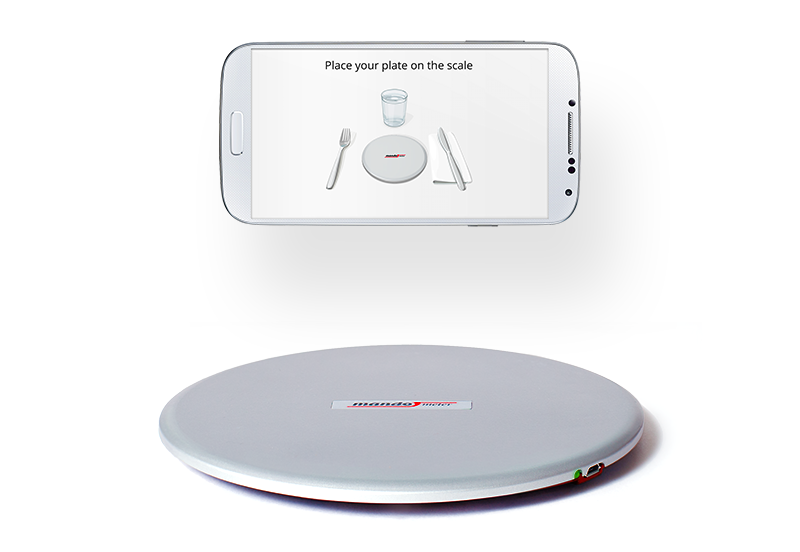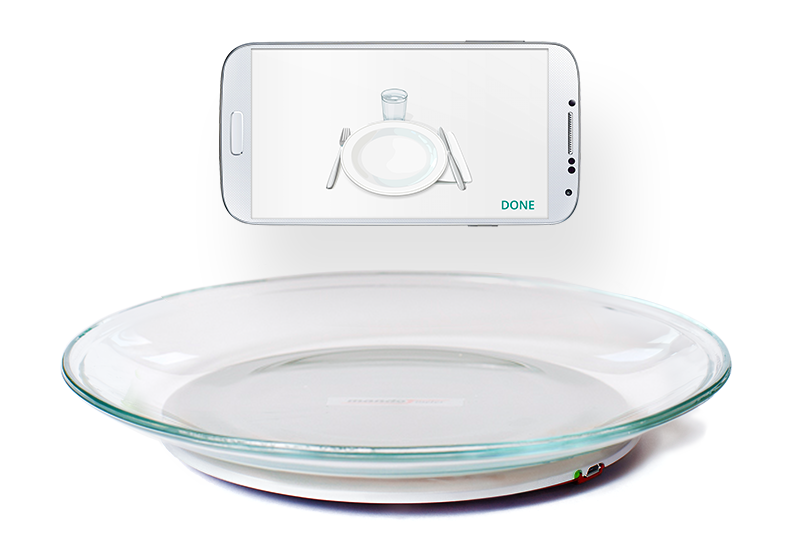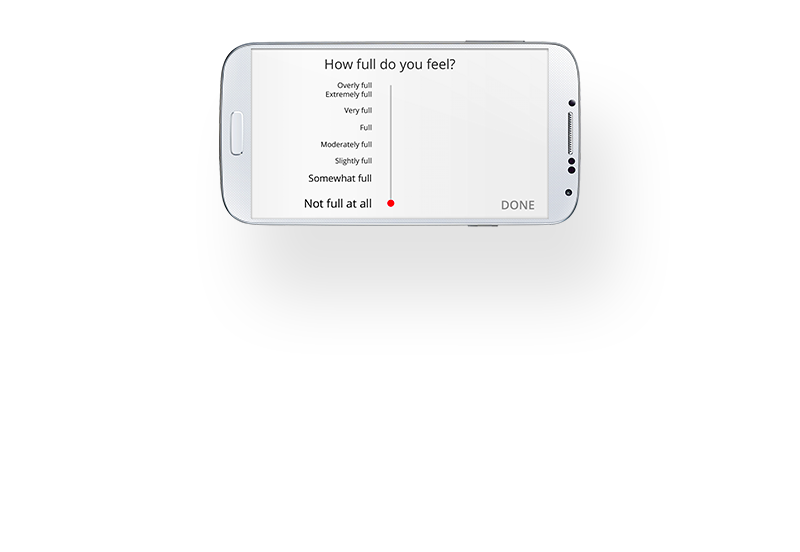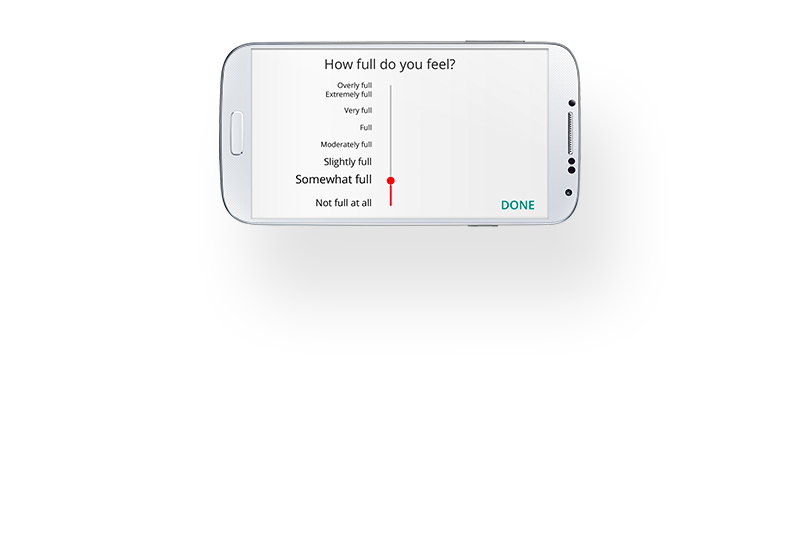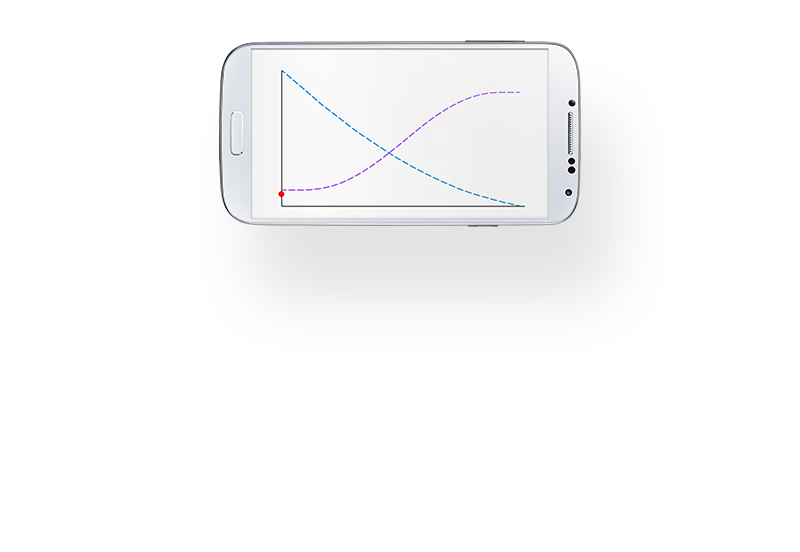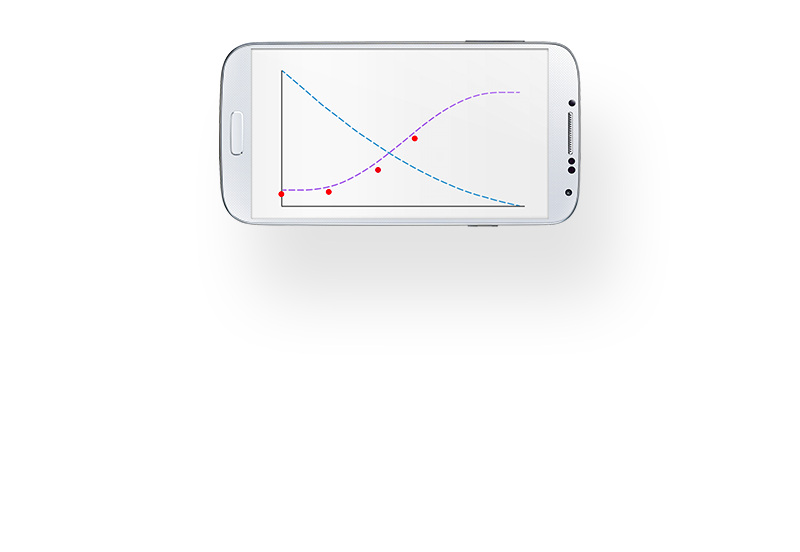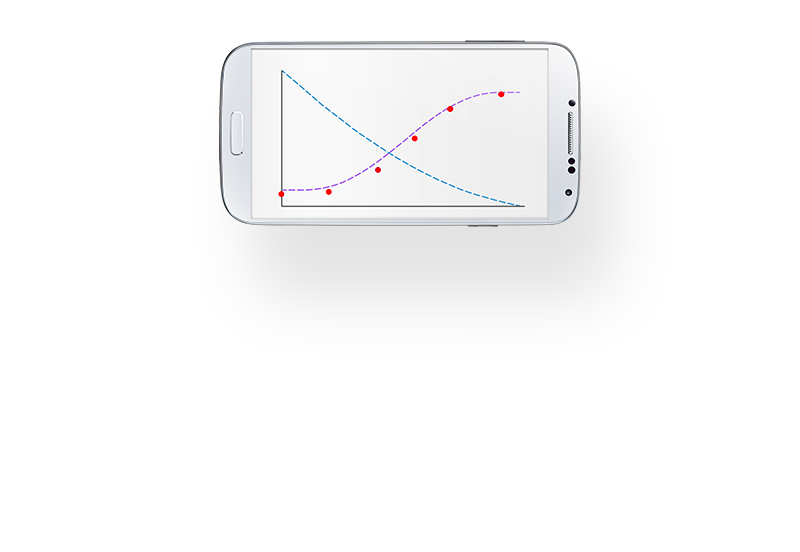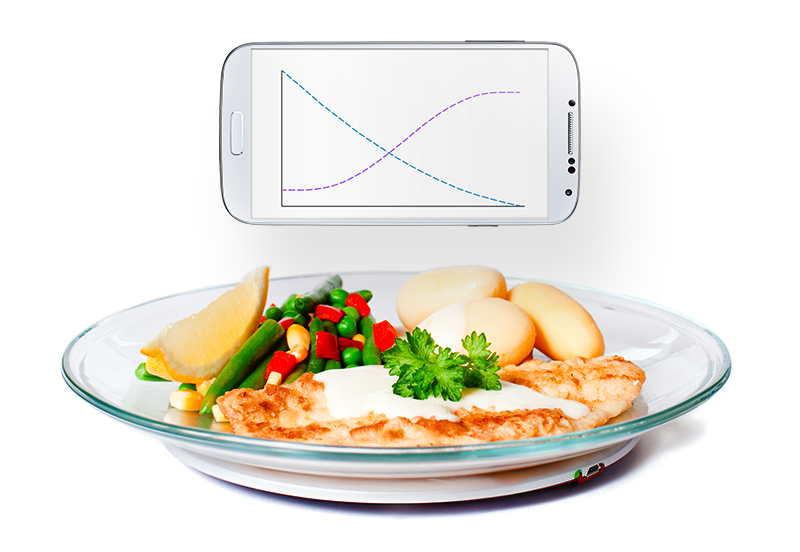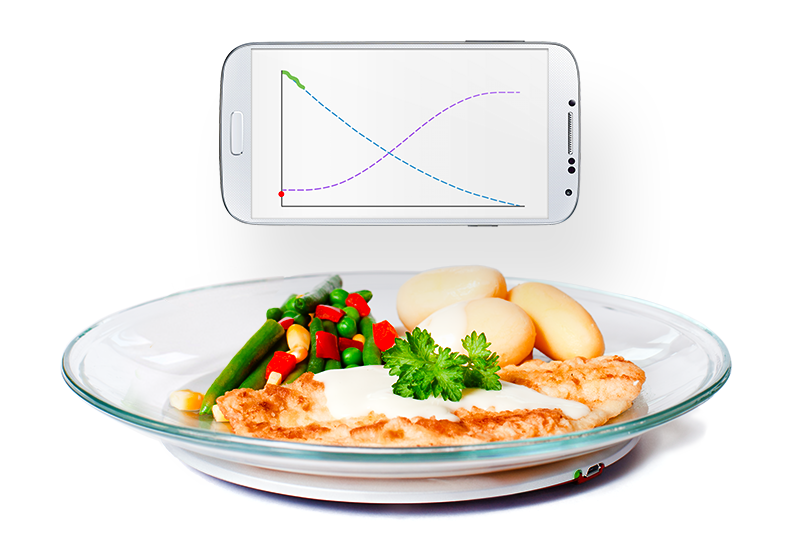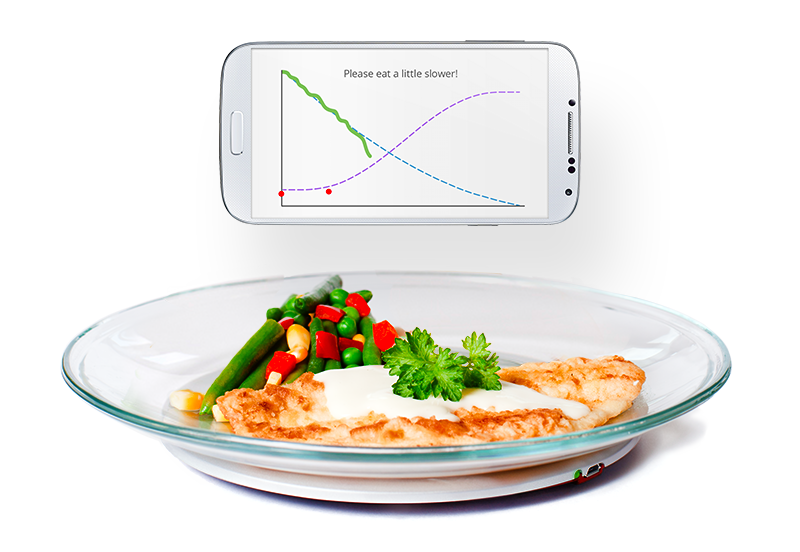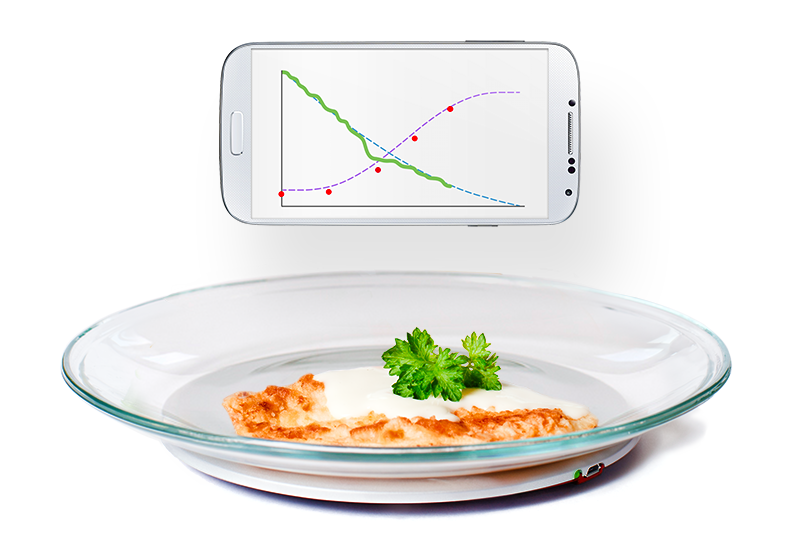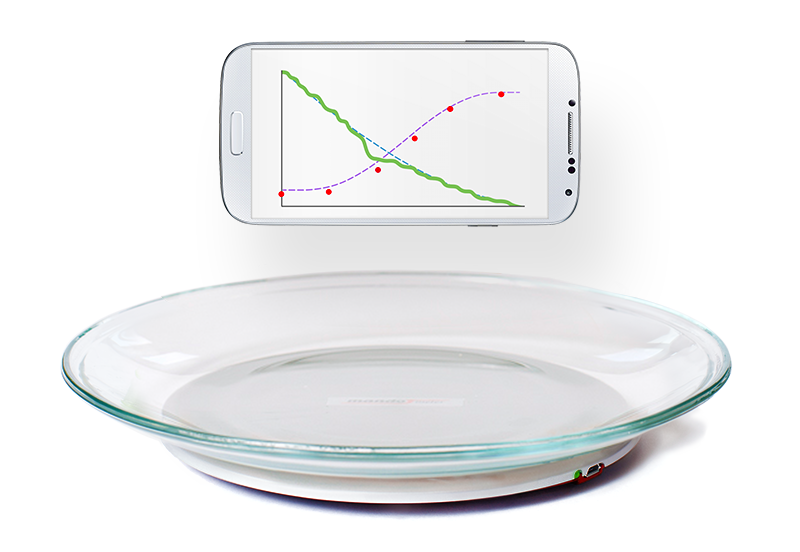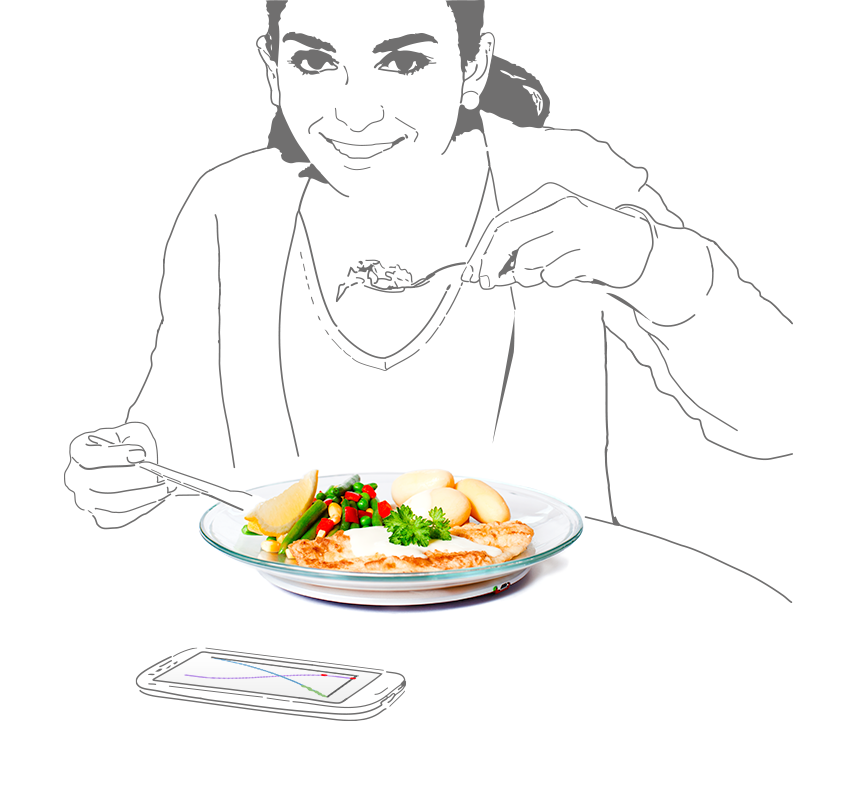
Restore a healthy eating behavior
Practicing with Mandometer® will help you identify your signals for hunger and fullness.
Mando Group AB has developed a non-invasive treatment for eating disorders and obesity that is based on 25 years of clinical research in collaboration with the Karolinska Institute in Stockholm.
Using the Mandometer® medical device allows patients to learn how to eat normally and when to feel full.
How it works
Our patients learn how to eat, how much and when to eat based on a proven weight control method. To reinforce healthy eating habits, we use the Mandometer®:
an interactive device developed by our research team >.

How to eat and feel full
Obese and anorexics are similarly treated. But while anorexics are encouraged to increase their speed of eating and feel full more slowly, obese patients learn to slow down and feel full more rapidly.
The obese and the overweight are treated as outpatients and they use a Mandometer® at home. When eating too quickly, signals from the stomach fail to reach the brain in time to prevent overeating. Eating with Mandometer® normalizes eating and restores the hormonal balance. And by changing eating behavior, thoughts and feelings in food-related situations also changes.
Why dieting is a problem
When you try to eat as little and as rarely as possible, as in a diet, you will be forced into an abnormal pattern of eating in which you never feel satiety. And avoiding your preferred foods produces cravings for those foods, resulting in changes in your thought patterns. When you restrict the amount of food that you eat, your metabolism slows down to prevent you from starving yourself. When you eventually increase your food intake after a food-restricting diet, your metabolism remains low, and the combination of a low metabolism and an increased amount of food reliably produces a weight gain. In fact, food-restricting dieting will guarantee that you will gain weight and lose control of your eating behavior.
The Mandometer® Device
Mandometer® is a scale connected to your smartphone via bluetooth.
Mandometer® registers the decrease in weight of the plate as you consume food over the course of the meal and compares this with normal weight individuals eating a similar meal.
You will get both visual and audio feedback. At regular intervals, you are also asked to indicate your level of fullness with the guidance of a normal satiety curve.
Training with Mandometer® will help you identify your signals for hunger and fullness.
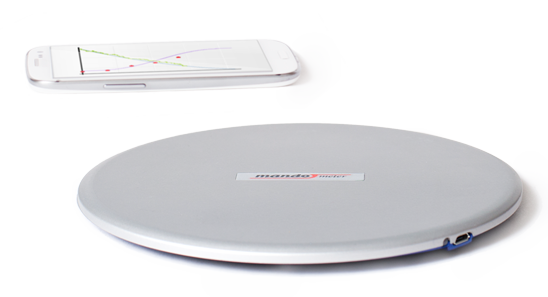
1.
Place your plate on the scale
and food on the plate
2.
Rate your fullness
3.
You adapt your eating speed
and fullness
to training curves

Mandometer will assist you throughout the day
The treatment starts with a control phase to evaluate your eating behavior.
The data is used to prepare an individual meal plan and treatment program.

SatietyMeter help you control your snacking
This reminder system helps you become aware of whether you are really hungry or just snacking out of habit or boredom.

Dr. Cecilia is an online avatar clinician who offers advice to our patients.
Dr. Cecilia uses a standard key-word search to access a database of over 5,000 Q & A. The database is based on more than 20 years of Mando’s clinical experience
Proven results

Mandometer treatment is more effective than a standard weight loss program. With Mandometer, the weight loss is maintained, and biological signals for hunger and fullness are re-established.
Mandometer treatment is a standard treatment in Sweden for eating disorders since 1997 and the company have brought over 2500 eating disorders patients into remission.
Read more about Mandometer treatment at: www.mando.se >
Research
Despite all the technical progress that humans have made, human biology remains the same. We have evolved to work hard for a modest amount of food but today we don’t need to engage in very much physical activity to eat tasteful, high-energy meals because food is too easily available. That is the simple reason why 1,5 billion people are now overweight. To help us deal with today’s un-biological situation, we need external support to control our bodyweight; Mandometer® provides that support.
Our research is carried out in close cooperation with the Karolinska Institutet.
Professor Per Södersten of the Karolinska Institutet is director of the Mando Group research department and is also one of Mando Group’s founders. He has studied how people eat and what happens to their physiology and emotions when eating patterns change. Since restrictive eating behavior may cause psychological disorders, a patient can change their emotional behavior by learning how to eat normally. His research is responsible for the development of the Mandometer, the device that facilitates the treatment of patients at our clinics.
Our research has been published in leading peer-reviewed scientific and medical journals. Read them at mando.se >
Normal eating behaviour decelerates over the course of a meal; we eat a little faster at the beginning of a meal and then slow down. However, people who have anorexia nervosa or other eating disorders eat at a constant rate; they eat linearly. Decelerate eaters are able to maintain control over their food intake, however, linear eaters find it difficult to maintain control when they have limited time to eat or when there is plenty of food available to eat. The result is a loss of control of food intake and body weight.
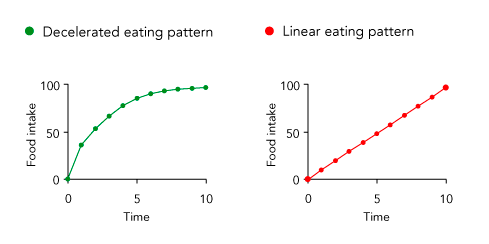
Decelerated and linear eating behaviour (Zandian et al. Physiol Behav, 2008;doi:10.1016/j.physbeh.2008.11.07).
Anxiety, obsessive thoughts and depression decrease as eating behaviour normalises.
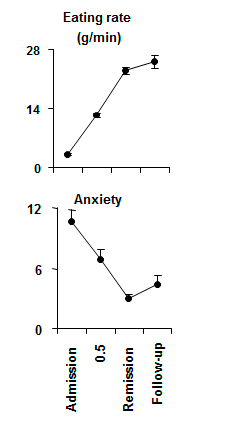
Zandian et al . Physiol Behav , 2008; doi: 10.1016 / j.physbeh.2008.11.07
Galhardo et al (JCEM 2012) reported that hormones thought to be engaged in hunger, e.g., ghrelin, and satiety, e.g., peptide tyrosine tyrosine, PYY, can be controlled by eating behavior. Thus the obese children and adolescents reported by Ford et al (2010) were examined at admission and at discharge, 12 months later.
- At admission, the children assigned to standard treatment or Mandometer had similar levels of ghrelin.
- Those treated with standard care had elevated levels of ghrelin at discharge.
- Those treated with Mandometer had reduced levels of ghrelin at discharge.
- Changes in the levels of PYY were the opposite to those in ghrelin.
These results show firstly that it is possible to control the hormones associated with eating behavior, reducing the speed of eating brings the hormones under control. Secondly, the results brings into question commonly held assumptions about the cause-effect relationship between hormones and eating behavior. The assumption is that an increase in ghrelin causes eating and that an increase in PYY has the opposite effect. The results reported by Galhardo et al (2012) suggest that it’s the other way around.
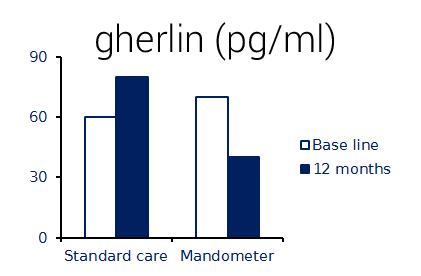
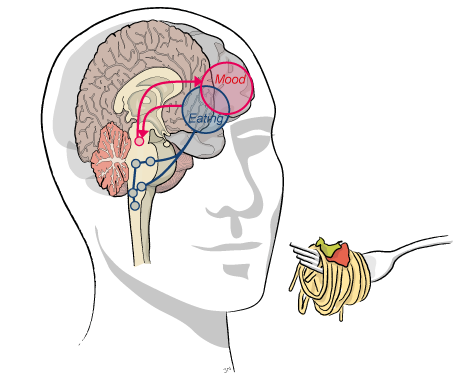

You are
How you eat
Surprisingly, anorexics and obese share the same problem; to normalize their body weight, they need to learn to recognize normal hunger and fullness. When they have accomplished the task, their body will tell them when to eat and when to stop eating, they will be in control of their food intake and body weight.

